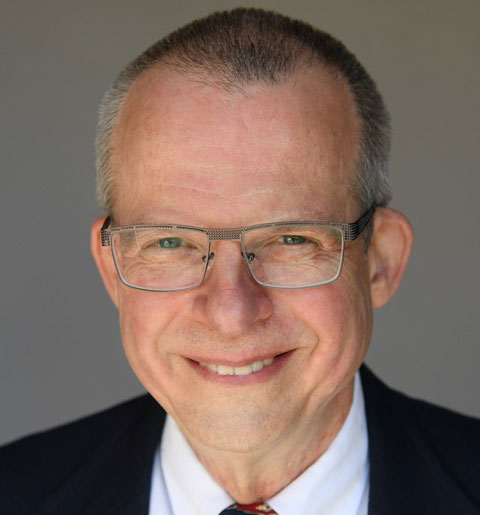About Us
Rehab Admissions
At Bayview Recovery
Bayview Recovery Center Admissions
We pride ourselves on being an open book to our patients and their families throughout the admissions process. All admissions needs is a few moments of your time to process the appropriate patient information to determine the proper individualized recovery path. This is how Bayview Recovery ensures the admissions process is thorough and efficient, without taking too much of your time. Without further ado, here’s everything you need to know about the admissions process at Bayview Recovery.

Admissions is all about getting to know the family and the individual looking to make a change in their life. You’ll know you’re in good hands the moment you reach out to our family-oriented team of caring professionals. Here is what to expect from our admissions team upon reaching out.
Everyone you speak to at Bayview Recovery has an embedded desire to meet your needs and recovery goals. The spirit you’ll encounter from our admissions department is just a taste of what you can come to expect from our caring team. The moment you reach out to our admissions team, you’ll know you’re in good hands.
The most intricate step of the admissions process is the introductory step of gathering addiction and mental health history. It’s important to be completely transparent and upfront as this phase dictates the entire course of rehab and level of treatment. This information should include the full extent of the admitee’s struggles with addiction. Be open and mindful to share noticeable triggers, symptoms, or concerns related to the admitant’s addiction or mental health struggles.
Your Admissions receptionist will help you iron out the travel arrangements prior to your arrival. These details include helping you with directions, transportation methods, and other travel amenities and necessities to be aware of. Speak to an admissions receptionist to get the transportation, travel, and traffic details to our
Our knowledgeable admissions team will fill you in on everything you need to know about our on-site campus. You’ll learn everything about the beautiful landscape of our unique location and the spacious homeliness of our campus rooms. Rest assured, all the details shared are but a stark comparison to the joys and leisures you’ll experience in person. We know you’ll feel right at home the moment you arrive at Bayview Recovery.
Your representative will provide details of treatment duration upon gathering all your necessary substance abuse and mental health history details. It’s important to understand that all roads to rehabilitation differ from one another and require an individualized approach. Therefore, the original duration is subject to change based on individual progress and preferences. The important matter here is to give you a ballpark idea with emphasis placed on ensuring the treatment recipient does not feel rushed.
This is a conditional service of admission strictly for those who are planning an intervention on behalf of a loved one. If you are planning an intervention, a representative will direct you to the proper intervention support specialist to cover specific protocols. These protocols consist of proper location, presentation arrangements, and other individualized details unique to your intervention plans.
Bayview Recovery goes the extra mile to work with your insurance provider to ensure the most affordable rate for your treatment needs. Together we’ll find out how much of your costs may be covered by your provider. Your treatment may be fully or partially covered depending on your insurance plan and type. This is dependent on numerous variables including treatment requirements, duration, and insurance type.

Admissions Treatment Assessment
The admissions team will place you in one of the following types of therapy based on your assessment status and condition severity. Admissions takes everything into account, including your preferences when determining your placement. Here are the three main types of therapy you’ll be placed upon thorough assessment.
IOP treatment admission is for individuals who struggle with a variety of addictions and mental disorders. Placement in this treatment means on-site monitoring and detox are not a necessary part of your recovery. This is thoroughly effective to help maintain accountability while retaining your independence. In short, IOP treatment enables you to go about your daily life with the occasional aid of a trained medical professional.
Partial hospitalization programs are a more hands-on therapy, usually lasting at least six hours per day at an on-site location. This means you are at a stage where around-the-clock monitoring is not considered necessary for your recovery growth. However, this still allows your doctor to closely monitor your progress while giving you an opportunity to go home for the evening. Most importantly, this still provides you and your therapist the opportunity to work closely on improving your weaknesses. Think of this phase as the final training wheels you need to stand on your own two feet in blissful sobriety.
Outpatient therapy requires the least monitoring and therapist supervision. These sessions are scheduled visits conducted at a private residence, usually the patient’s home. Placement in OP therapy means you’re almost ready to be on your own, without any treatment Therefore, OP therapy is considered the final step before regaining complete sobriety and complete independence from your strongholds or mental struggles.
Admission at Bayview Recovery is the First Step of the Rest of Your Life
The most important decision you’ll make at any stage of your recovery is enrolling in addiction or mental health treatment. Nothing is possible without taking that first step, but everything is possible when you do. Everything else seems to fall into place after reaching out to Bayview Recovery’s unparalleled treatment specialists. Take that first step that can change your life forever.
What Our Clients Are Saying
“The staff at the center has been remarkable in their care for our loved one. Tuni was with us the whole way as we tried to get this person into treatment. They continue to assist us as the process continues. Great work!”
Ray O
“I have been trying to get sober the past 3 years and I have been to treatment 5 times. Bayview Recovery was my 6th time. They helped me get to 142 days sober! I was a handful hot mess when I got there but the team never gave up on me. They work with families and they truly care about them too. Bayview house’s are clean and comfortable and the staff is amazing. They plan for fun events weekly and they want you to have fun. If your looking for something different call them it will save your LIFE!”
Cindy J
“Bayview is dedicated to providing clients the healthiest environment to develop a solid foundation in their recovery. The therapists and medical team are devoted to ensure clients have the best individualized care. I highly recommend Bayview for anyone seeking a highly professional treatment program. The care and compassion given to clients is remarkable.”
Robin M
“This is a fantastic facility with outstanding staff. If you or a loved one is struggling this is a great program to start the journey of recovery and get life long skills and relationships to begin a new life!”
Garrett T
“Just picked up our daughter after 90 days at Bayview Recovery. Loved the staff and facility, do not know what the future holds ???????? but while at Bayview , always felt informed. Highly recommend, incredibly helpful especially at the very beginning when we were so helpless and needed help the most – God Bless.”
Rosie S
Take a Look at Our Blogs
Despite their seemingly harmless appearance and widespread popularity, the dangers…
Have you noticed your partner or loved one's drinking habits…
Dave Cundiff, MD, MPH is an experienced leader in the field of Substance Use Disorder treatment. He works with patients suffering from Substance Use Disorder to evaluate their medication needs and prescribe treatments accordingly. In addition, he regularly participates in all-staff debriefing sessions involving peers, nurses, and other prescribers. He also reviews and advises on policies, procedures, and techniques for treating substance use disorder.







